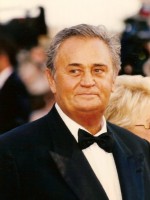Les deux marseillaises is a french film of genre Documentary directed by André S. Labarthe with Roger Hanin
Les deux marseillaises (1968)

If you like this film, let us know!
Les Deux Marseillaises est un film documentaire français réalisé par Jean-Louis Comolli et André S. Labarthe, sorti en 1968.
Synopsis
La campagne des élections législatives de juin 1968 à Asnières avec les trois principaux candidats : Albin Chalandon (UDR), Claude Denis (PCF) et Roger Hanin (FGDS).Actors
Comments
Leave comment :
Suggestions of similar film to Les deux marseillaises
There are 63 films with the same actors, 3 films with the same director, 8968 with the same cinematographic genres, 7854 films with the same themes (including 114 films with the same 3 themes than Les deux marseillaises), to have finally 70 suggestions of similar films.If you liked Les deux marseillaises, you will probably like those similar films :
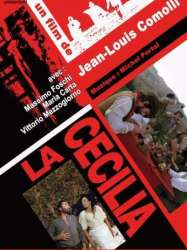
La Cecilia (1976)
, 1h53Directed by Jean-Louis Comolli
Origin France
Genres Drama
Themes Films about anarchism, Politique, Political films
Actors Vittorio Mezzogiorno, Maria Carta, Biagio Pelligra
Rating70%





À la fin du XIX siècle, des anarchistes italiens, dix hommes, une femme, libertaires, collectivistes, émigrent au Brésil pour y fonder une communauté sans chef, sans hiérarchie, sans patron, sans police, mais pas sans conflit, ni passion.
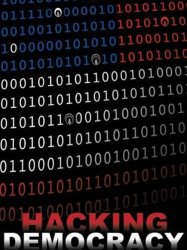
Hacking Democracy (2006)
, 1h22Directed by Simon Ardizzone
Origin USA
Genres Documentary, Crime
Themes Politique, Documentary films about politics, Documentary films about technology, Political films
Actors James Naughton
Rating77%





Relatant une enquête longue de 3 ans réalisé par des citoyens américains, le film traite des anomalies et irrégularitées des systèmes de vote électronique (e-voting) qui ont eu lieu pendant l'élection présidentielle de 2004 aux États-Unis, et plus particulièrement dans le comté de Volusia en Floride. Le film enquête sur les problèmes d'intégrité des machines de vote électronique, en particulier celle du fabricant Diebold.

Gentilly Or Not To Be (2012)
, 55minutesOrigin Canada
Genres Documentary
Themes Politique, Documentary films about nuclear technology, Documentary films about politics, Political films, Documentary films about Quebec politics
Le film Gentilly Or Not to Be pose la question suivante aux défenseurs du nucléaire et à ses détracteurs : au-delà des risques d’accidents et de gestion de déchets irradiés, quels sont les impacts du nucléaire sur la santé humaine? Les réalisateurs se demandent aussi s'il est préférable "d'aller de l’avant avec la réfection de Gentilly-2, ou bien profiter de l’occasion pour se tourner vers des sources d’énergie alternatives".

Les États-Désunis du Canada (2012)
, 1h24Origin Canada
Genres Documentary
Themes Politique, Documentary films about politics, Political films
Les États-Désunis du Canada débute avec les images du love-in alors que des milliers de Canadiens déclarent leur amour au Québécois peu avant le referendum en 1995. Quinze ans plus tard, la réalisatrice Guylaine Maroist se rend dans l’Est et dans l’Ouest du Canada pour rencontrer les sécessionistes de ces régions. En Alberta, le motif est clair : c’est une question de business.
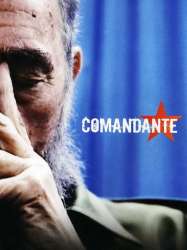
Comandante (2004)
, 1h39Directed by Oliver Stone
Origin USA
Genres Documentary
Themes Seafaring films, Politique, Transport films, Documentaire sur une personnalité, Documentary films about politics, Political films
Actors Oliver Stone, Santiago Segura, María Eva Duarte de Perón
Rating68%





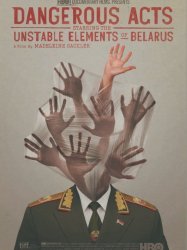 , 1h16
, 1h16Origin USA
Genres Documentary
Themes Politique, Documentary films about politics, Political films
Rating72%





Une blague circulait en Biélorussie après la réélection du 19 décembre 2010 d'Alexandre Loukachenko au poste de Président de la République : « Monsieur le Président, j'ai deux nouvelles à vous annoncer. La bonne, c'est que vous êtes réélu et la mauvaise, c'est que personne n'a voté pour vous ! ».

Me Bob Robert (2003)
, 27minutesDirected by Denys Desjardins
Origin Quebec
Genres Documentary
Themes Politique, Documentaire sur une personnalité, Documentary films about politics, Political films, Documentary films about Quebec politics
Moi, Robert « Bob » jette un regard intimiste sur un homme confronté à la dureté de la vie politique. Vue unique et privilégiée du monde fermé des machines électorales, ce documentaire, en forme de portrait, se veut une réflexion sur l’image que projettent les politiciens d'aujourd'hui.
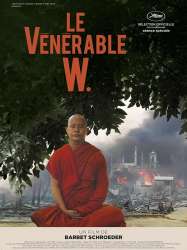
The Venerable W. (2017)
, 1h35Directed by Barbet Schroeder
Origin France
Genres Documentary
Themes Politique, Films about religion, Documentaire sur une personnalité, Documentary films about politics, Documentary films about religion, Political films
Actors Bulle Ogier, Barbet Schroeder, Maria de Medeiros
Rating70%





En Birmanie, le « Vénérable W. » est un moine bouddhiste très influent. Partir à sa rencontre, c’est se retrouver au cœur du racisme quotidien, et observer comment l'islamophobie et le discours haineux se transforment en violence et en destruction. Pourtant nous sommes dans un pays où 90% de la population est bouddhiste, religion fondée sur un mode de vie pacifique, tolérant et non-violent.
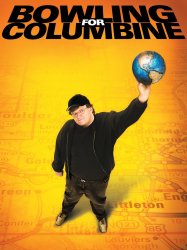
Bowling for Columbine (2002)
, 1h54Directed by Michael Moore
Origin USA
Genres Drama, Documentary
Themes Films about education, Politique, Documentary films about politics, Political films, Films about school violence
Actors Michael Moore, Charlton Heston, Marilyn Manson, Matt Stone, Chris Rock, Keanu Reeves
Rating79%





Ce film est un documentaire critique de la société américaine qui tente de répondre à cette question : « Pourquoi le nombre d'homicides par arme à feu est-il proportionnellement plus élevé aux États-Unis que dans les autres pays ? ». Le titre fait référence à la fusillade du lycée Columbine à Littleton (Colorado) en 1999 où 12 lycéens et un professeur sont assassinés par deux de leurs camarades.

Persona Non Grata (2003)
, 1h7Directed by Oliver Stone
Origin USA
Genres Documentary
Themes Films set in Africa, Politique, Films about religion, Documentary films about law, Documentary films about war, Documentary films about historical events, Documentaire sur une personnalité, Documentary films about politics, Documentary films about religion, Political films, Films about Jews and Judaism
Actors Oliver Stone
Rating63%





Film documentaire de 2003 produit par Oliver Stone pour la série HBO America Undercover sur le conflit en Palestine occupée. Il s' entretiens avec Ehud Barak et Benjamin Netanyahu, anciens Premiers ministres d'Israël, Yasser Arafat, défunt président de l'Autorité nationale palestinienne, et divers militants palestiniens qui résistent à l'oppression du régime sioniste.
 Connection
Connection
